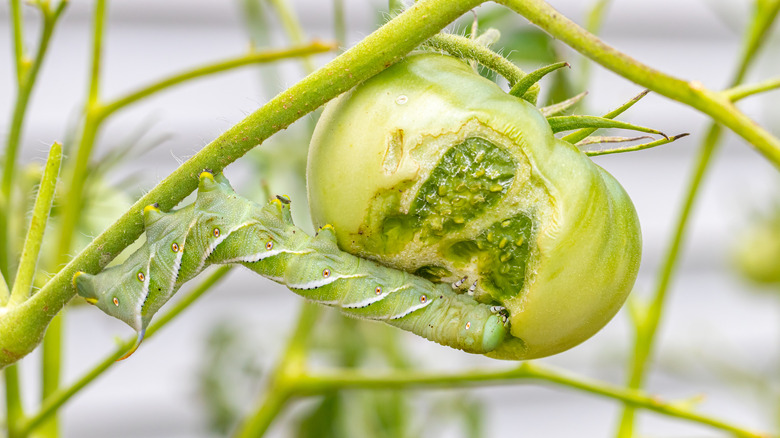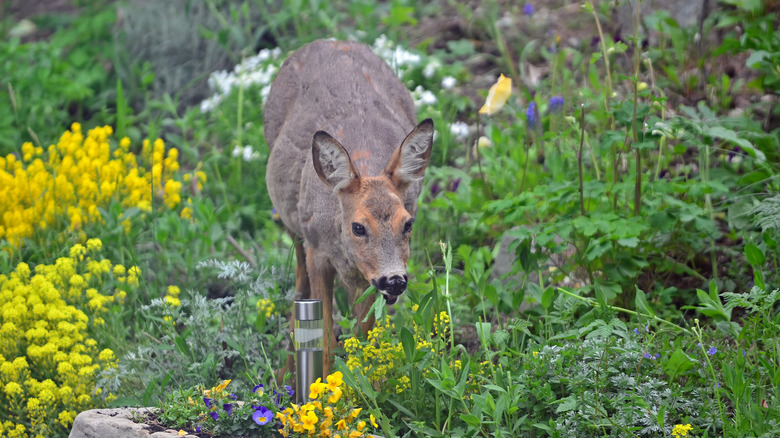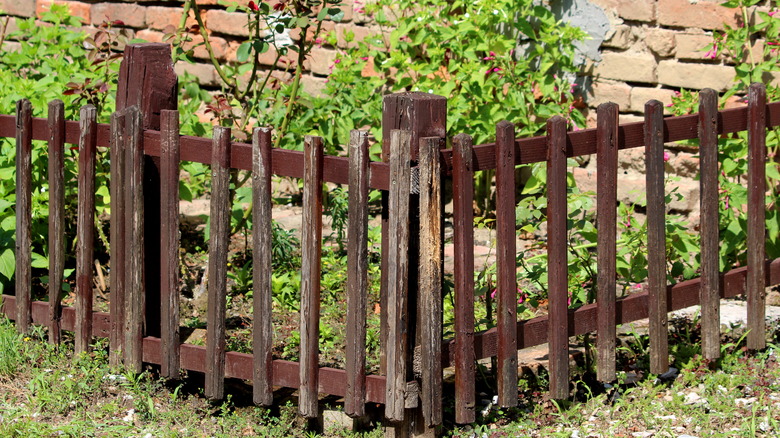The Most Common Garden Pests You'll Find Living In The Midwest
Ranging in a variety of different sizes and species, pests can pose a huge threat to flourishing gardens. Plants in the midwestern portion of the United States are susceptible to all kinds of pests, from large mammals to swarms of invasive insects. Common midwestern insect pests include squash bugs, aphids, hornworms, and various types of beetles.
Squash bugs are flat and dark-colored insects that are often mistaken for stink bugs. They feed off of pumpkins and squash plants, negatively impacting their water and nutrient intake. Aphids are extremely common pests throughout the United States, and the Midwest is no exception. Like squash bugs, aphids slowly kill plants by feeding off of their juices. Before forming cocoons and becoming moths, hornworms can do a lot of damage to gardens throughout the region. In preparation for their transformation, these large green caterpillars munch on leaves and fruits, causing major holes in greenery and spoiling produce.
Whether you're dealing with flea beetles or Colorado potato beetles, these common midwestern pests also feed directly off of vegetation, fruits and vegetables, making them a major cause for concern in any garden. While less common, invasive bugs like the Japanese Beetle, Brown Marmorated Stink Bug, Spotted Wing Drosophila, and Asian Longhorned Beetle pose even larger threats to midwestern gardens.
Mammal pests
Common mammal pests include groundhogs, pocket gophers, chipmunks, moles, raccoons, and deer. As burrowers, groundhogs, gophers, and moles create tunnel systems underground that can disrupt roots and affect plant growth. Gophers also often eat the roots, while groundhogs directly impact gardens by eating the growing produce aboveground. They enjoy produce like apples, berries, corn, lettuce, and carrots. Raccoons and deer are strictly above-ground garden pests, and they will eat nearly anything once they make their way into a trash can, raccoons are not picky when they find themselves in a luscious and thriving garden, often opting for fruits, berries, and corn.
Deer are the largest of the group, making just one visit from a single deer detrimental to a garden's growth. Not only can they step on vine plants like cucumbers and pumpkins, but the main diet of deer consists of greens, making plant stems and leaves huge targets. They also tend to eat soft plants with high water content like roses and rhododendrons.
Protecting your plants
The midwestern portion of the United States is susceptible to many different garden pests. That being said, each pest has its own weaknesses and deterrents. For instance, there are multiple different ways to keep burrowing mammals like groundhogs away from your property, including natural repellents, as well as ways to safely trap smaller mammals and release them back into a more appropriate environment. As for deer, which you should not try to relocate yourself, a simple fence around your property or the plants you are looking to protect should do the trick.
For small but mighty pests like aphids and other insects, natural and simple methods are available to regain control of your garden. All insects are different, meaning that while a deterrent works well for one species, it may not work at all for another. Be sure to do your research to find out what removal and avoidance techniques work best for the pest you are dealing with.


